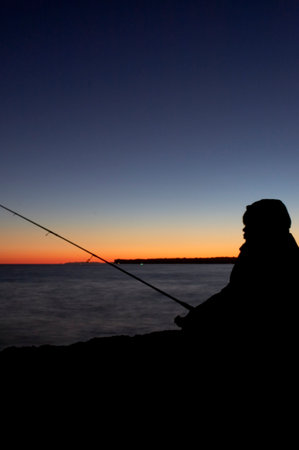Introduction to Closed Seasons in British Fisheries
Closed seasons are a cornerstone of British fisheries management, shaping not only the ecological landscape but also the traditions and practices of anglers across the UK. At its core, a closed season refers to a specific period during which fishing for certain species, or in designated waters, is prohibited by law. This concept has been integral to British angling culture for centuries, balancing the needs of nature with those of recreational and commercial fishers. The primary goal of closed seasons is to protect vulnerable fish populations during their spawning periods, ensuring sustainable stocks for future generations.
In the context of British fisheries, closed seasons have become more than just a regulatory tool; they represent a cultural rhythm that guides when and how people engage with their local rivers, lakes, and canals. The anticipation surrounding the end of a closed season is palpable among anglers, often marking it as a highlight in their annual calendar. Understanding the rationale behind these temporal restrictions requires an appreciation of both ecological science and longstanding tradition within the UK’s angling communities.
Key Aspects of Closed Seasons in Britain |
Description |
|---|---|
Definition |
Legally mandated periods when fishing is not allowed for specific species or waters |
Main Purpose |
To protect fish during critical stages like spawning |
Cultural Importance |
Embedded in traditional angling practices and seasonal rhythms |
Applicability |
Varies by region, water type (rivers, stillwaters), and target species |
Historical Development of Closed Seasons
The concept of closed seasons in British fisheries is deeply rooted in both legal tradition and the rich heritage of angling in the UK. To truly appreciate the rationale behind today’s regulations, it’s worth taking a look back at how these rules have evolved over time—shaped by a blend of conservation needs, social customs, and legislative milestones.
Early Origins and Traditional Practices
Closed seasons can be traced back to medieval times, when local customs and common law began to reflect an understanding of fish breeding cycles. Anglers and riverside communities developed unwritten codes that discouraged fishing during spawning periods—a principle that would later underpin formal legislation. These early practices highlight the longstanding respect for nature embedded within British angling culture.
Key Legal Milestones
| Year | Legislation/Development | Significance |
|---|---|---|
| 1878 | Salmon Fishery Act | One of the first national laws to establish close seasons for salmon, setting a precedent for future regulation. |
| 1923 | Freshwater Fisheries Act | Extended close season concepts to coarse fish, reflecting growing awareness of ecosystem needs. |
| 1975 | Salmon and Freshwater Fisheries Act | Brought together previous statutes, standardising close season periods across England and Wales. |
| 2000s-Present | Byelaw Adaptations | Local authorities gain more flexibility to tailor closed seasons based on regional conservation requirements. |
The Influence of Angling Heritage
The British passion for angling has always gone hand-in-hand with stewardship. Legendary figures such as Izaak Walton, author of The Compleat Angler, advocated for restraint and ethical fishing long before it was enshrined in law. This ethos continues to shape modern policy: clubs and societies often uphold stricter standards than the legal minimum, maintaining traditions that respect both fish stocks and fellow anglers.
Cultural Continuity and Local Variation
Across England, Scotland, Wales, and Northern Ireland, closed seasons vary not just according to legislation but also due to distinct local customs. This patchwork approach honours regional heritage while ensuring that regulations remain relevant to specific water bodies and species. In practice, this means that an angler must be familiar with both national law and local byelaws—a testament to the layered history underpinning British fisheries management.
A Living Legacy
Taken together, the evolution of closed seasons in Britain reflects a careful balance between tradition and science. The system remains dynamic, adapting as new environmental challenges arise yet always drawing upon a legacy of responsible angling—a characteristic hallmark of British cultural identity.

3. Ecological and Biological Rationale
The implementation of closed seasons in British fisheries is deeply rooted in ecological and biological principles. At the heart of these regulations lies the need to protect fish populations during their most vulnerable periods, particularly spawning. During spawning, fish invest significant energy into reproduction, making them more susceptible to overfishing and habitat disturbance. By temporarily halting fishing activities, authorities can ensure that sufficient numbers of mature individuals survive to reproduce, thus maintaining healthy stock levels for future generations.
British freshwater and marine species exhibit distinct seasonal rhythms, with each species having unique spawning times influenced by water temperature, daylight hours, and habitat conditions. For instance, coarse fish such as bream and roach typically spawn between April and June in British rivers, while Atlantic salmon migrate upstream to spawn from autumn through winter. Understanding these natural cycles has been instrumental in shaping closed season dates across various water bodies in the UK.
Key Ecological Reasons for Closed Seasons
| Reason | Description | Example Species |
|---|---|---|
| Spawning Protection | Prevents disturbance during breeding, allowing eggs and fry to develop undisturbed. | Trout (Salmo trutta), Salmon (Salmo salar) |
| Stock Conservation | Ensures enough mature fish survive to replenish populations and sustain fisheries long-term. | Pike (Esox lucius), Barbel (Barbus barbus) |
| Seasonal Rhythms | Aligns fishing restrictions with natural behaviour patterns such as migration and feeding. | Bass (Dicentrarchus labrax), Eel (Anguilla anguilla) |
The Importance of Habitat Preservation
Closed seasons not only protect individual fish but also safeguard critical habitats such as spawning grounds, nursery areas, and migratory routes. These habitats are often at risk from both angling pressure and other human activities during peak reproductive periods. By enforcing seasonal closures, regulators help maintain the integrity of aquatic ecosystems throughout Britain.
A Legacy of Science-Led Management
The rationale behind closed seasons reflects a commitment to science-led management in British fisheries. Decades of field observations and biological studies underpin current policies, ensuring that closures are timed precisely when fish populations need protection most. This approach has proven essential in sustaining both commercial and recreational fisheries across the UK’s diverse waterways.
4. Societal and Economic Considerations
Closed seasons have far-reaching implications that extend beyond environmental stewardship, directly impacting local communities, fisheries management strategies, and the broader angling industry in the UK. The interplay between tradition, livelihoods, and conservation objectives makes the topic particularly nuanced within British society.
Social Impact on Local Communities
For many rural communities across England, Scotland, and Wales, fishing is more than just a pastime—it is interwoven with local identity and heritage. Closed seasons can affect social cohesion, as angling clubs often see reduced activity during these periods. However, these pauses also offer opportunities for community-driven conservation projects and riverbank maintenance initiatives. The rhythm of closed seasons often shapes local events calendars and the social life of waterside villages.
Economic Implications for Fisheries Management
From an economic perspective, closed seasons create both challenges and benefits for fisheries management authorities and local businesses reliant on angling tourism. Temporary reductions in fishing-related income can put pressure on small tackle shops, guides, and accommodation providers. Yet, by supporting fish population recovery, closed seasons help sustain long-term yields and ensure that future generations can continue to enjoy both commercial and recreational fishing.
Benefits vs. Challenges: A Comparative Overview
| Aspect | Benefits | Challenges |
|---|---|---|
| Local Communities | Enhanced sense of stewardship; Opportunities for education & conservation volunteering | Reduced social activity; Possible decline in club memberships during closures |
| Fisheries Management | Sustainable fish populations; Improved stock assessment accuracy | Increased enforcement costs; Potential for illicit fishing activity (poaching) |
| Angling Industry | Long-term business viability; Increased visitor satisfaction post-closure due to healthier stocks | Short-term loss of revenue; Seasonal staff layoffs or reduced hours |
The Way Forward: Balancing Interests
The success of closed season policies ultimately depends on striking a balance between ecological necessity and socio-economic realities. Transparent communication with stakeholders—including anglers, business owners, and conservationists—remains essential. As someone who has witnessed both the disruptions and rewards that come with these seasonal pauses, I believe ongoing dialogue and adaptive management are key to ensuring that Britain’s fisheries remain vibrant for years to come.
5. Contemporary Debates and Regional Variations
The modern landscape of closed seasons in British fisheries is far from uniform, reflecting ongoing debates, evolving scientific understanding, and pronounced regional differences. Across England, Scotland, Wales, and Northern Ireland, contemporary discussions focus on balancing ecological needs with economic realities and cultural traditions. This section examines current controversies, recent regulatory changes, and the distinctive attitudes shaping closed season policies throughout the UK.
Analysis of Recent Debates
Closed seasons have come under scrutiny as stakeholders question their relevance in a changing environment. Anglers and commercial fishers alike express concerns that some restrictions are outdated or lack scientific backing. Conversely, conservationists argue that climate change and increased fishing pressures make such measures more vital than ever. Modern debates often centre on:
- Effectiveness: Critics highlight instances where closed seasons do not correspond with shifting spawning times due to warming waters.
- Economic Impact: In regions heavily reliant on angling tourism or commercial fishing, closed seasons can mean significant financial loss.
- Cultural Resistance: Longstanding local customs occasionally clash with nationwide regulations imposed by central authorities.
Regional Variations in Closed Season Policies
The application of closed seasons varies significantly by region, shaped by both regulatory frameworks and community values. The table below summarises some key differences:
| Region | Main Species Affected | Typical Closed Season | Recent Changes & Debates |
|---|---|---|---|
| England | Coarse Fish (e.g., Barbel, Chub) | 15 March – 15 June (rivers) | Debate over lifting bans on stillwaters; pilot projects for local management. |
| Scotland | Salmon, Sea Trout | Varies by river system | Differing start/end dates; calls for flexible closures based on local data. |
| Wales | Bass, Salmonids | Diverse seasonal closures (marine & freshwater) | Pushback from small-scale fishers; emphasis on devolved decision-making. |
| Northern Ireland | Trout, Salmon | Loughs: specific periods; Rivers: variable | Tightening of rules for conservation amid declining stocks. |
Cultural Attitudes and Adaptation
Cultural attachment to traditional fishing practices remains strong in many communities, influencing acceptance or resistance to regulatory changes. In England’s rural heartlands, for instance, some anglers view closed seasons as an essential part of the yearly rhythm—an opportunity to focus on habitat improvement. Conversely, certain Scottish river trusts advocate for adaptive closures aligned with contemporary scientific insights rather than fixed dates.
Looking Ahead: Policy Evolution and Local Voices
The future of closed seasons in British fisheries appears set for further adaptation. Regulatory bodies increasingly consult with local angling clubs, scientific advisors, and industry representatives to ensure that closed seasons are evidence-based yet sensitive to local circumstances. As debates continue about the best path forward, it is clear that regional nuance and stakeholder engagement will play a critical role in shaping effective and culturally acceptable fisheries management across the UK.
6. The Future of Closed Seasons in British Fisheries
Looking ahead, the future of closed seasons in British fisheries appears to be shaped by a confluence of scientific research, policy reforms, and changing environmental and social pressures. As the UK continues to adapt its fisheries management post-Brexit, there is a growing recognition that closed seasons must remain dynamic and responsive rather than static relics of tradition.
Ongoing Research and Innovations
Modern fisheries science is increasingly data-driven, with ongoing research focusing on fish migration patterns, spawning times, and the impacts of climate change. This evidence-based approach allows for more precise timing and duration of closed seasons, tailored to specific species and local conditions rather than relying solely on historical norms.
Key Areas of Research
| Research Focus | Potential Impact on Closed Seasons |
|---|---|
| Climate change adaptation | Adjusting closed seasons as fish breeding cycles shift due to temperature changes |
| Population genetics | Protecting genetically distinct sub-populations during critical periods |
| Ecosystem-based management | Synchronising closures across multiple species and habitats for holistic protection |
Possible Reforms and Policy Shifts
The evolving landscape has prompted calls for more flexible regulatory frameworks. Some experts advocate for real-time closures based on up-to-date monitoring rather than fixed calendar dates. Additionally, integrating traditional knowledge from local fishing communities with scientific expertise can create more robust and acceptable management measures.
Anticipated Reforms:
- Implementation of adaptive management strategies that respond rapidly to new scientific findings.
- Greater use of technology (e.g., remote sensing, electronic catch reporting) to inform timely decision-making.
- Increased stakeholder engagement to balance ecological needs with the economic realities faced by British fishers.
Adapting to Environmental and Societal Changes
The ability of British fisheries to adapt their approaches will be crucial in facing future challenges. Environmental shifts—such as altered sea temperatures or invasive species—may necessitate frequent review and adjustment of closed seasons. Simultaneously, societal factors like changing consumer preferences for sustainable seafood or increased recreational angling pressure could drive further reforms.
| Environmental Change | Adaptive Response |
|---|---|
| Warmer seas affecting spawning times | Move closed season dates earlier or later as appropriate |
| Newly arrived invasive species | Create targeted closure periods to limit spread during vulnerable stages |
A Balanced Approach for the Next Generation
The next chapter for closed seasons in British fisheries will likely blend tradition with innovation. By grounding policies in robust science while remaining sensitive to local contexts and economic livelihoods, the UK can ensure that closed seasons continue to safeguard both fish stocks and the communities that depend upon them for years to come.


